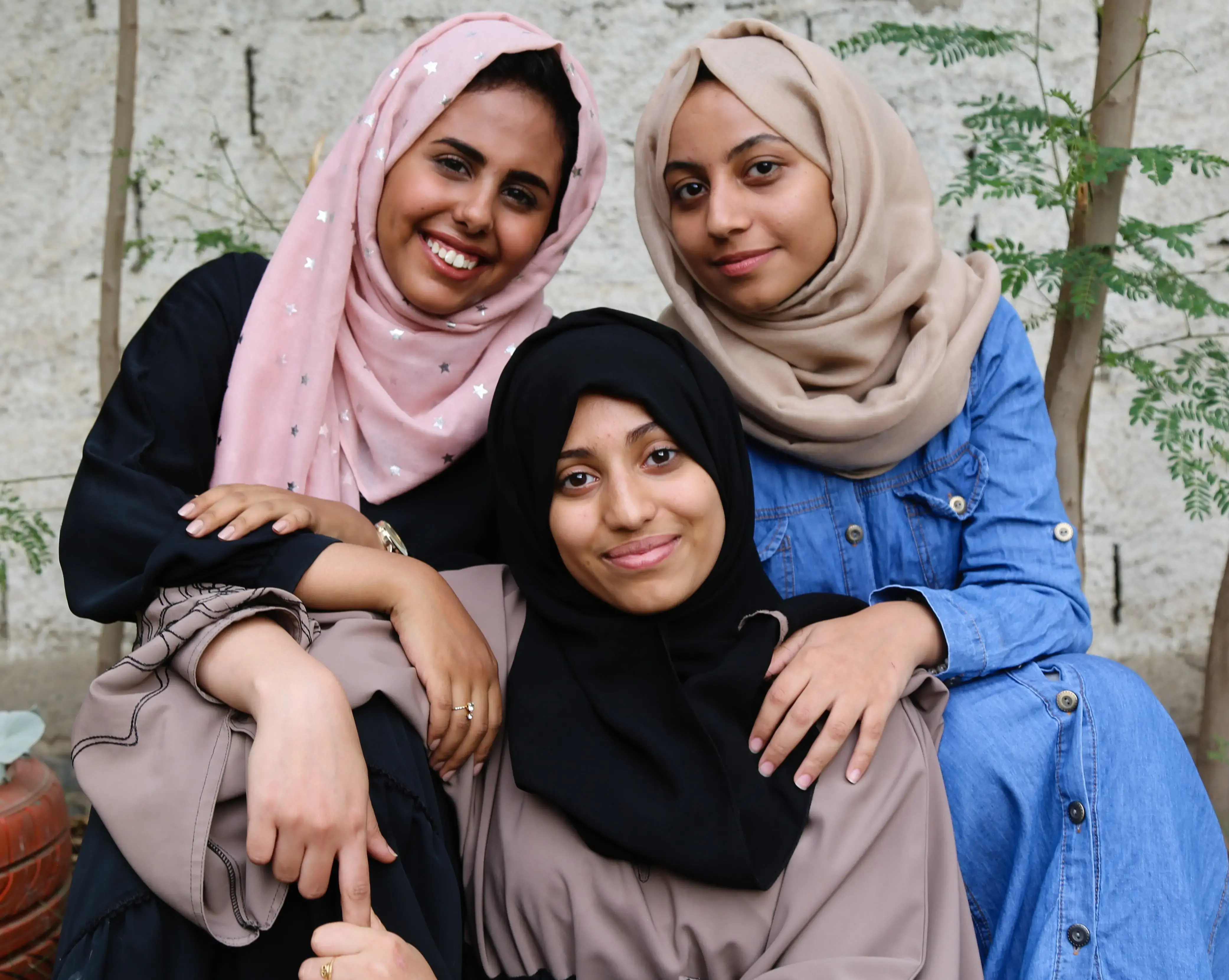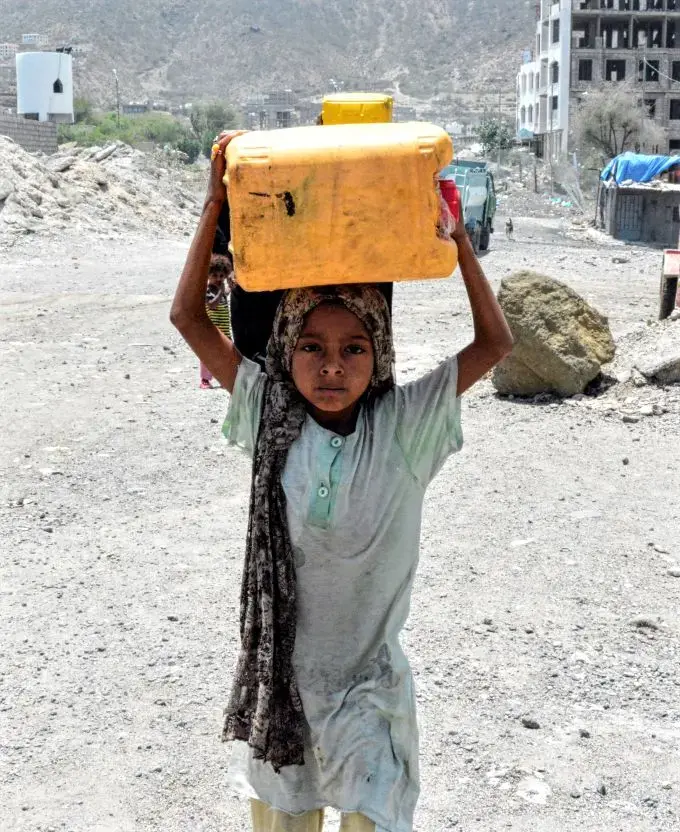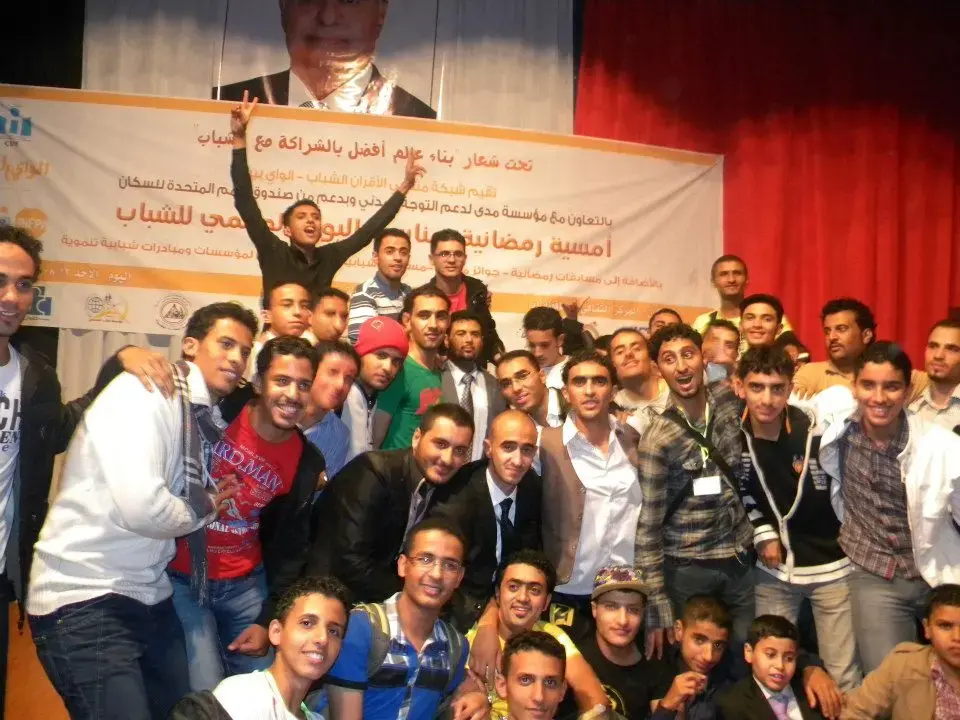Young people (15-29 years) make of almost 30 per cent of Yemen’s population, constituting a demographic youth bulge; yet more than eight years of conflict have made young people increasing vulnerable and severely limited their ability to contribute to peacebuilding efforts, development and influence decision-making processes in their communities due to the lack of education and employment opportunities.
Young women and men face quite different challenges as a result of the conflict, with young women’s mobility constrained and vulnerability to early marriage and gender-based violence particularly high. Young men at risk of recruitment by armed groups, are pressured to contribute financially to their families. In active conflict zones and battlefronts, protection risks for young men and women have been magnified by the conflict – death, injury, displacement, human rights abuses – contributing to injustices and grievances which are a driving force for violence and radicalization of youth. The lack of household income has had predictable results, including increasing indebtedness, with an estimated 80 per cent of Yemenis in debt and more than half of all households buying food on credit.
Since the escalation of the conflict in 2015, opportunities for education and training for young people has significantly reduced and in some areas completely disappeared. While many young people have sought to engage in humanitarian efforts through international and local efforts, most lack the qualifications and connections to gain access to opportunities. Youth are often excluded from decision-making at home and in the community for various reasons, including lack of expressive and negotiation skills and limited experience and confidence in articulating their ideas, needs and visions. In urban areas, access to skills building and learning opportunities are limited due to the lack of finances, while in more rural areas such opportunities are simply not available.
Recent research conducted by UNFPA found that the escalation of hostilities and the absence of a political settlement have made young women and men desperate for educational and economic opportunities. The challenges faced by young people have been compounded by halting of many initiatives targeting youth, such as youth clubs and sports activities. A study from 2017 found that 26 per cent of youth between 15-25 years of age spend more time at home as a result of the conflict. Moreover, there are no strategic initiatives that seek to enable youth to affectively play a role in the peacebuilding and development.
Key Interventions:
UNFPA recognizes that young people, particularly adolescent girls, face significant challenges related to their health, protection and wellbeing. These challenges can have far-reaching consequences for young people, including on their physical and mental health, diminished educational and economic opportunities, and social exclusion.
UNFPA is working to address these challenges through a range of interventions:
- Ensuring access to integrated reproductive health services and information
- Addressing determinants of health and wellbeing of adolescence and youth, upholding rights and investing in human capital
- Promoting the leadership of adolescents and youth and their fundamental right to participate in development, humanitarian action and in sustaining peace.




